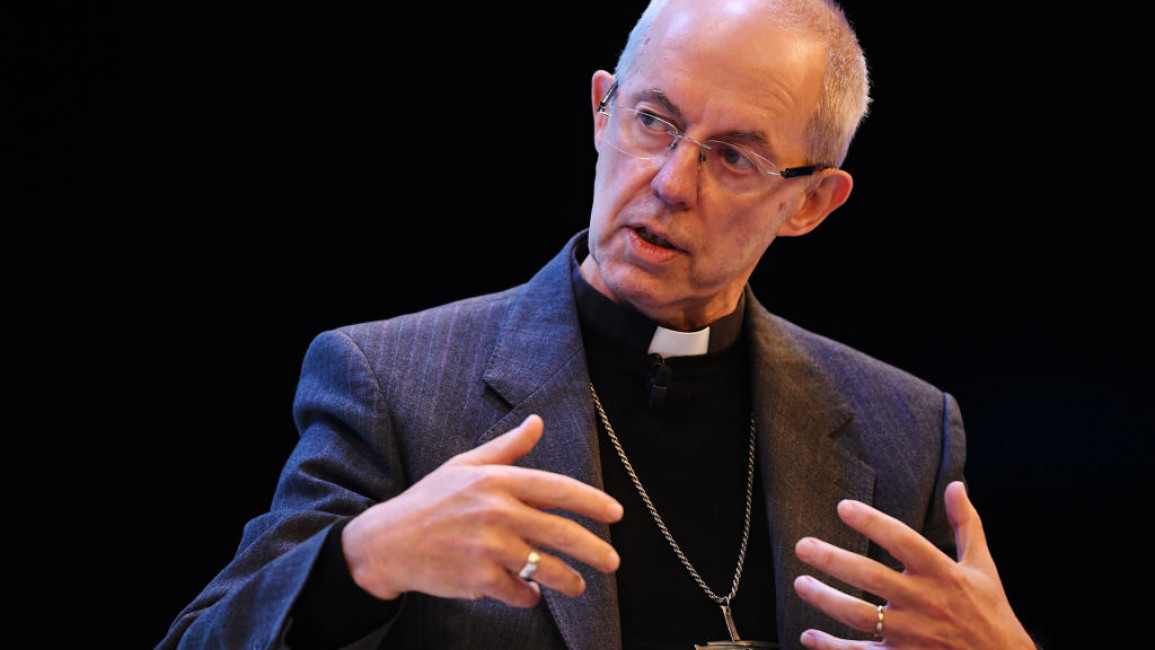Archbishop of Canterbury urges Ethiopia to use mega-dam project 'responsibly'
The Archbishop of Canterbury appealed to the Ethiopian government on Friday to end a decades-long dispute over their mega-dam with Egypt and Sudan by showing they can manage the project fairly and responsibly.
Justin Welby, head of the Anglican church, made the comments from Cairo, where he was celebrating the inauguration of a new Province of Alexandria.
He urged African nations to share resources and restart negotiations over the Grand Ethiopian Renaissance Dam (GERD).
During a press conference at All Saints’ Cathedral, the Christian leader stressed that natural resources do not belong to certain countries and appealed to the GERD’s owners to show their large-scale infrastructure project posed no threat to downstream countries.
"I appeal to the Ethiopian government to show beyond doubt that they will use this dam responsibly caring for those in need downstream. This may well be their intention. But it is clear that other countries are worried. Please show that this dam is not a reason to worry," said Welby.
"The Christian understanding of natural resources is that they are good things given to all people by a loving and generous creator," he said.
"It is therefore essential that all the goods of the earth are shared fairly and reasonably. They do not belong to any one person or country, but it is absolutely essential that…there is negotiation to share them."
The GERD is a hydroelectric dam built by the Ethiopian government to regulate water flow in the River Nile and generate electricity for its energy-deprived population. Construction on the dam started in 2011. Over the years, it has caused a long-standing dispute between Ethiopia and downstream countries Egypt and Sudan.
While the creators and owners of the GERD hail the benefits of cheap electricity and see the dam as a source of national pride, Egypt and Sudan have raised concerns about essential water supplies running dry.
Despite calls for a legally binding agreement between the three nations over water flow and management, no deal has been reached.
John Mukum Mbuku, author of 'The Controversy over the GERD', told The New Arab that "adequate cooperation" was needed between the three countries to reap its full benefits for all.
Mbuku said there is currently an "unwillingness [among] these three countries to sit and start looking at how they can all benefit". But, he added, if they started cooperating then the dam would open up opportunities in terms of water management as well as poverty eradication and economic development.
The professor explained that historic treaties giving virtually all the Nile's water resources to Egypt must be replaced by new agreements based on solutions that are negotiated for and by the African people.
Just last month, the UN Security Council encouraged Egypt, Ethiopia and Sudan "to resume negotiations" under the support of the African Union in order to find a "mutually acceptable and binding agreement".
The Archbishop of Canterbury's trip to Egypt ends on Monday.
Welby would have visited last June when the new Province of Alexandria - which includes ten countries in Africa and the Middle East - was inaugurated. But the trip was delayed due to Covid-19.



